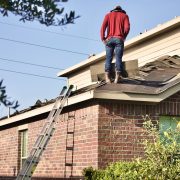Real estate investment is profitable if you know the ins and outs properly. With upcoming inflation, a minor mistake can lead to a devastating property loss. Taking preventive measures and advanced planning can reduce the risk of a bad investment. We have made a list of ten mistakes that any real estate investor must avoid when making an investment decision.
10 Must-Avoid Factors When Buying a Real Estate Property
Property investment requires a combination of precise calculations about the current & future market situation and a wise decision-making procedure. Here are 10 things that you must avoid at any cost when making an investment decision.
- Not Having a Plan
A good plan is half of your work done. So, planning is essential for any work, real estate, or others. With proper strategy and planning, you can get the best deals in the market. For example, you can plan ahead your next year’s real estate budget and marketing strategy to get ahead of the competitors.
You can do market research and prepare a business strategy accordingly. Additionally, calculate the expenses, debts, contingencies, and other risk factors. Without proper planning, 90% chances are you will fail to achieve your investment goals. An expert in the field would never make such a mistake.
- Not Including The Operating Expenses
Often investors finance any property while underestimating or totally ignoring the additional expenses that come with the investment. Along with the constant maintenance cost, you should also consider the operating expenses- utilities, insurance, property taxes, major repairs, and property management fees.
Remember that a property needs regular cleaning, occasional painting, and repair, which needs extra effort and funds. Overlooking these expenses may result in an ultimate loss. Inspect the associated costs in advance and learn whether you need additional financing for it. Also, consider well the terms and conditions of taking a loan.
- Trusting Just Anyone
When it comes to the matter of a big investment, you can just rely on anyone. Once you are in the business, you will get many exciting offers and investment proposals. But you must do a thorough background check on the party you will be working with before you accept any offer. It is so easy for many people to fall into the trap of lucrative offers and make a deal with the wrong people who have no professional background.

- Not Doing Adequate Research
Doing a beforehand research is mandatory before investing. Compare and negotiate different locations, real estate agents, and property types and values before making any major decision. Mind the fact that the research pattern will vary on the type of real estate investor you are, whether a homeowner, broker, future landlord, or developer.
When doing the research, consider asking the following questions when investing in a new property.
Property Location: Where is the property located? Is it in a residential area or in a commercial plot? Is it located in tidal plains that often are flooded? Or is it in a red zone that has radon or other problems? Properties near a commercial area or major construction site have a higher value proposition. Contrarily, a problematic area has a lower property value.
Addressing issues: Does the house you are buying or selling have a safety, foundation, or permit issue? Does it need any major construction or replacement?
Local authority’s plan: What plan the local authority has for the specific city/town is necessary to know before making any decision. For instance, housing development authority in Ada County, ID has bigger plan with Finis Terra. Easily the price of Finis Terra properties will increase at least by 10% in next 2 years. So it is very important to understand the local authority’s plan before finalizing investing decision.
Upcoming Projects: What are the upcoming projects for the area you are supposed to invest in? Will there be any major changes in terms of demographics, property values, or household types?
Neighboring area: When investing in a new town/city, is the surrounding area safe to move in or invest in? Is there any problematic zone in the area?
Essentials: Are essentials, like- grocery stores, pharmacies, and hospitals, nearby?
Reasons to be sold: What is the main reason the house is being sold?
Age & value of the house/property: When was the house first built, and how much did the owner pay to buy it?
- Underestimating The Tenants’ Needs
If you are a future landlord or property owner, you must look after the needs of your tenants. Needs may vary depending on the type of tenant you have. College students, small families, joint families, young professionals, young couples, and singles are mainly the renters of residential properties.
Students may prefer a location near their educational institutions; families prefer a safe location with schools nearby, and professional couples look for a rental home near their office. For vacation rental, the property should be near the local attractions. So, you understand that their needs are different, and you must consider their preferences while choosing a property to invest in.
- Allure For Fast Money
Investing is like growing a tree that takes time to bear fruit. You can not make money out anywhere. So, do not go for any lucrative offer without doing the proper investigation. You must have some patience when you are in a business, particularly a real estate business, and look for the right opportunity to invest. Don’t just jump in and pour in all your money and expect a fast return.
- Overpaying
You have to spend basic expenses to sell the property, but that should not be too much to surpass the profit margin. Often real estate investors spend a bulk on marketing. But you can cut the cost when you find a good dealer for your property.
Not only the expenses, but when buying a property, most investors get excited and accept the seller’s offer without thinking if they’re overpaying for the property. Before investing in your dream project, you must consider, compare, and decide if you are overpaying for it.
- Putting All Eggs In One Basket
As a property investor, you must already know that you should not invest all your money in one property. But very few people really follow. Portfolio investment reduces the risk of property loss at a great level. So, instead of risking all your money in one tangible property, make several small investments. It increases the chance of growing your money exponentially. Spread the money and the growth on your own.
- Not Asking For Assistance
Experienced real estate buyers are all good at finding the best deals on their own. But you may need help if you are new in this sector. As a newcomer in the real estate business, you should keep no stone unturned and take help from the experts in the fields- licensed realtors, adept home inspectors, insurance representatives, skilled handymen, and competent attorneys.
A few good sales do not make it obvious that things will always go as smoothly. Communicate with as many resourceful persons as you can, make friends with the subject experts to learn the ins and outs of real estate investment, and ask for assistance if needed. They can share valuable insights, give expert opinions to make the right purchase, and show roads to new investment opportunities.
- You Don’t Have A Plan B
Always have a plan B for your investment projects. Wise investors always keep a backup to avoid the potential risk of property loss. They plan ahead, make strategies, and have a plan B because their plans may not always work as expected, especially during an economic collapse. You need to have a solid plan B so that you can execute it when the plan does not go as you thought. As a property buyer, then, you will have some scope to renegotiate your mortgages, reconsider the property value, and find new tenants if needed.
Whether you want to buy or sell a property or you want to trade, make sure to follow the real estate guidelines and avoid the mistakes we mentioned earlier. As a real estate investor, you should be well aware of the current market situation and avoid the common mistakes most people make!




















